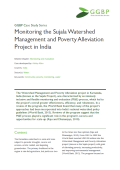This cost-benefit analysis study was conducted within the CITYWATER project, which aimed to promote the implementation of water protection actions to improve the state of the local waters and the Baltic Sea. It consists of five case studies representing differing water protection measures implemented by the municipalities within the Baltic Sea catchment area: (i) centralising of municipal wastewater treatment to Luotsinmäki wastewater treatment plant (WWTP) in Pori; (ii) an investment in new aerators in Liepaja WWTP; (iii) reception of sewage waters from ships in the Port of Helsinki; (iv) a constructed stormwater wetland in Lahti; and (v) agricultural buffer zones in the city of Turku. The study provides information on the impacts of municipal water protection measures, the environmental benefits in monetary terms, and the net benefits gained by society.
The results from the case studies show that investments in infrastructure such as wastewater treatment plants and port reception facilities, as well as in natural solutions such as stormwater wetland and agricultural buffer zones, result in significant reductions in nutrient loads. These reductions were shown to have an impact both on the state of the Baltic Sea and local waters, such as lakes, rivers and coastal waters. In addition, the study found that measures such as these can provide various other benefits such as energy savings, reduced climate emissions, biodiversity conservation, and recreational values.


